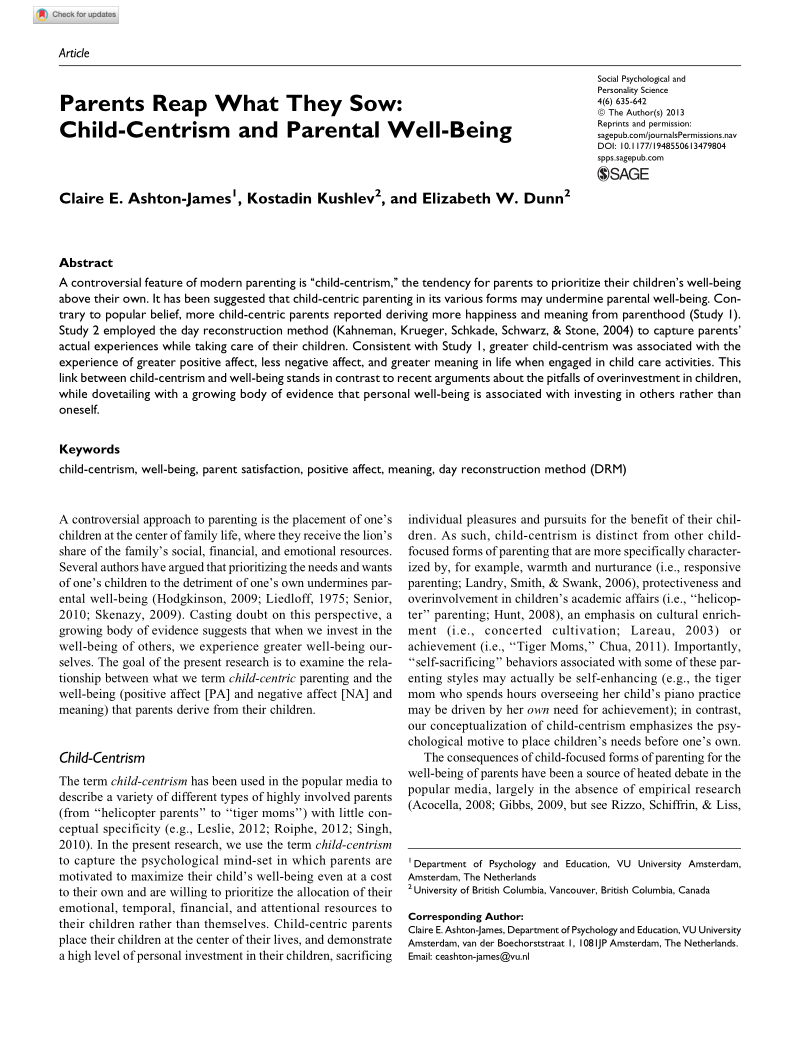Social Psychological and Personality Science study finds that child-centric parents experience greater meaning and positive affect when taking care of their children.
- Type
- Academic / Technical Report
- Source
- Claire E. Ashton-James Non-LDS
- Hearsay
- Direct
- Reference
Claire E. Ashton-James, Kostadin Kushlev, and Elizabeth W. Dunn, "Parents Reap What They Sow: Child-Centrism and Parental Well-Being," Social Psychological and Personality Science 4, no. 6 (2013): 640
- Scribe/Publisher
- Social Psychological and Personality Science
- People
- Elizabeth W. Dunn, Kostadin Kushlev, Claire E. Ashton-James
- Audience
- Reading Public
- Transcription
Consistent with the prosocial investment hypothesis, we found a positive association between parents’ child-centrism and their experience of meaning and PA [positive affect] when taking care of their children. By using the DRM [day reconstruction method] and by asking parents to respond to our child-centrism questionnaire after our happiness questions, we were able to show that putting one’s children at the center of one’s life (thus presumably incurring more costs overtime) does not just enhance parents’ theories about how much enjoyment they derive from their children, but is associated with the actual enjoyment and meaning that parents derive from their children (cf., Eibach & Mock, 2011). These findings stand in contrast to claims in the popular media that prioritizing children’s well-being undermines parents’ well-being: In our samples, while child-centrism was not strongly associated with differences in the well-being that parents experienced during non-parenting activities, it was associated with the well-being that parents experienced when taking care of their children, suggesting that child-centrism may be associated with benefits rather than costs for parents’ well-being.
- Citations in Mormonr Qnas
The B. H. Roberts Foundation is not owned by, operated by, or affiliated with the Church of Jesus Christ of Latter-day Saints.

